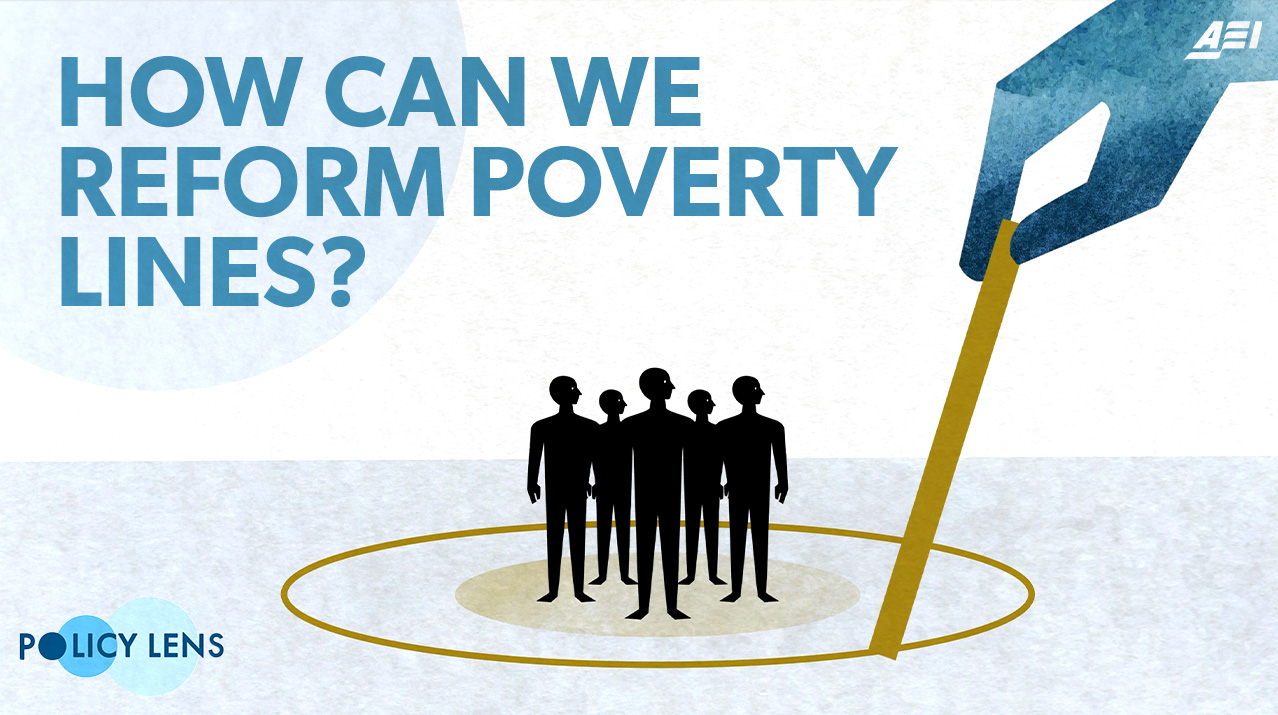Welcome to Our Research Archive
Search and filter by content type, issue area, author, and keyword
- ✕ Clear Filter
- Artificial Intelligence (1)
- Child Welfare (44)
- Child Welffare (1)
- Civil Society (35)
- Economic Opportunity (1)
- Economic Security (105)
- Economic Well-Being (1)
- Education (206)
- Family (113)
- Featured (5)
- Fmaily (1)
- Fraud (2)
- Housing (110)
- Housing Supply (1)
- Marriage (1)
- Safety Net (223)
- Social Capital (43)
- Social Captial (1)
- Tax & Transfer Policies (1)
- tax credit (2)
- Welfare (2)
- Workforce (113)
- Workforce Development (3)
- Workfrce (1)
- Workfroce (1)
- Workorce (1)
- ✕ Clear Filter
- Adam J. White (1)
- Angela Rachidi (62)
- Beth Akers (39)
- Brent Orrell (101)
- Bruce D. Meyer (15)
- Casey B. Mulligan (1)
- Charles Murray (1)
- Daniel A. Cox (11)
- Edward J. Pinto (28)
- Edward L. Glaeser (10)
- Frederick M. Hess (40)
- Greg Wright (1)
- Howard Husock (91)
- Ian Rowe (15)
- James C. Capretta (1)
- James Pethokoukis (20)
- John Bailey (2)
- Joseph Fuller (5)
- Kevin Corinth (76)
- Kyle Pomerleau (9)
- Leslie Ford (6)
- marie cohen (1)
- Mark Schneider (9)
- Mason M. Bishop (2)
- Matt Weidinger (84)
- Matthew Continetti (1)
- Max Eden (3)
- Michael Barone (1)
- Michael Brickman (3)
- Michael Pugh (2)
- Michael R. Strain (35)
- Naomi E. Feldman (1)
- Naomi Schaefer Riley (67)
- Nat Malkus (21)
- Nicholas Eberstadt (5)
- Paul Ryan (3)
- Preston Cooper (38)
- R. Glenn Hubbard (4)
- Ramesh Ponnuru (5)
- Raphael Colard (1)
- Richard Burkhauser (8)
- Richard V. Burkhauser (4)
- Robert Cherry (6)
- Robert Doar (14)
- Robert Pondiscio (18)
- Ross Douthat (2)
- Ryan Streeter (5)
- Sally Satel (2)
- Samuel J. Abrams (7)
- Scott Winship (62)
- Stan Veuger (10)
- Timothy P. Carney (16)
- Tobias Peter (35)
- W. Bradford Wilcox (86)
- Yuval Levin (10)

March 20, 2025
To Transform K-12 Education, the Trump Administration Should Measure What Matters
When the National Assessment for Educational Progress (NAEP) was first administered in 1969, nearly nine out of 10 American children were born into married, two-parent homes. By 2023, this number had decreased to six out of 10 children on average, with wide variations across racial groups. Stunning disparities in married, two-parent households by race tightly correlate with disparities in child poverty, domestic violence, and father absence—all…

March 19, 2025
What Can We Learn from Louisiana’s Progress in K–12 Education?
The 2024 National Assessment for Educational Progress results revealed a nation in academic decline, with scores “below pre-pandemic levels . . . in ALL tested grades and subjects,” according to the National Assessment Governing Board. Louisiana, however, is an outlier: It was one of only two states that experienced growth over its pre-pandemic levels in fourth-grade…

March 19, 2025
AI and Jobs: Measuring Impact and Building New Assessment Tools
Event Summary On March 19, AEI’s Brent Orrell and Shane Tews hosted a panel discussion featuring Alex Tamkin, an AI researcher at Anthropic, and Jason Owen-Smith, a sociologist at the University of Michigan, on how AI is shaping the labor market and workforce development policy. The conversation was moderated by Axios reporter Ashley Gold. The…

March 18, 2025
Poorly Defined: Reforming the Poverty Line | POLICY LENS
Ever since President Lyndon B. Johnson declared a “war on poverty” in 1964, the US Safety Net has been remarkably effective in reducing the number of Americans living in poverty; but measuring the magnitude of that success is not so straight forward. AEI’s Kevin Corinth explains that defining poverty is largely a decision of society,…

March 18, 2025
Rebuilding Higher Education Finance: Reform Through Reconciliation
Event Summary On March 18, AEI’s Beth Akers and Preston Cooper spoke with Alex Ricci of the Education Finance Council and Lindsey M. Burke of the Heritage Foundation to discuss what it would look like to pass meaningful higher education finance reform through the budget reconciliation process. First, Dr. Akers introduced the speakers and encouraged…

March 18, 2025
Low-Rise Multifamily and Housing Supply: A Case Study of Seattle
Abstract We provide an in-depth case study of land use reforms in Seattle to highlight how redevelopment of aging single-family housing to townhomes can lead to a significant increase in market-rate housing that promotes affordability. The key is to allow market forces to use by-right zoning to drive small-scale development, when also supported by clear…

March 17, 2025
How State Policymakers Can Save the Nuclear Family
Blue states are better for families. That is what many academics contend. In their classic book “Red Families v. Blue Families: Legal Polarization and the Creation of Culture,” law professors Naomi Cahn and June Carbone argue that blue states have the liberal values and policies they believe make for strong and stable families. Scholars like…

March 17, 2025
Progressives Are Starting to Come Around on the Importance of Marriage and Fatherhood
Progressives and conservatives rarely agree. But there’s a growing consensus about this one data point: America’s men are not OK. This isn’t exactly a political phenomenon — although men are changing politically, too. Last summer, economist Tyler Cowen detected a “vibe shift” in American culture, noting people were drifting rightward. Among his 19 reasons for the shift,…

March 17, 2025
Trump Should Put an End to Rent Control
We are in a time when what would have seemed to be unimaginable domestic policy changes — from the abolition of the Department of Education to cutoffs of federal support for universities — are on the table. The Department of Housing and Urban Development is involved in this creative destruction — having pulled back a Biden-era program called Affirmatively Furthering Fair Housing, which tied federal assistance for…

March 14, 2025
A Historic Opportunity for Higher Education Reform
Once a sleepy policy area on the national scale, higher education is now a central issue making headlines in the overall political discourse. Believe it or not, the education policy divides between mainstream Democrats and Republicans used to be trivial. For example, 10 years ago, Sen. Elizabeth Warren’s (D-Mass.) proposal to lower student loan interest rates to 3.9…